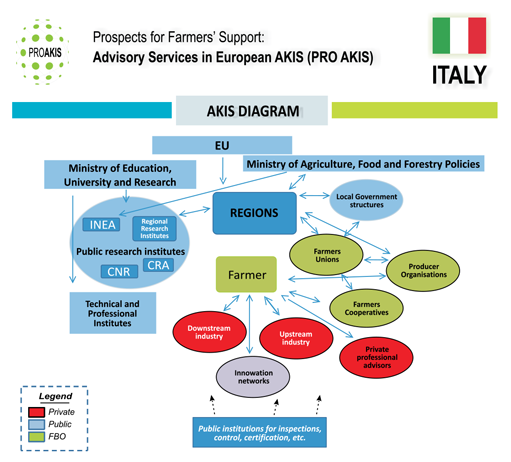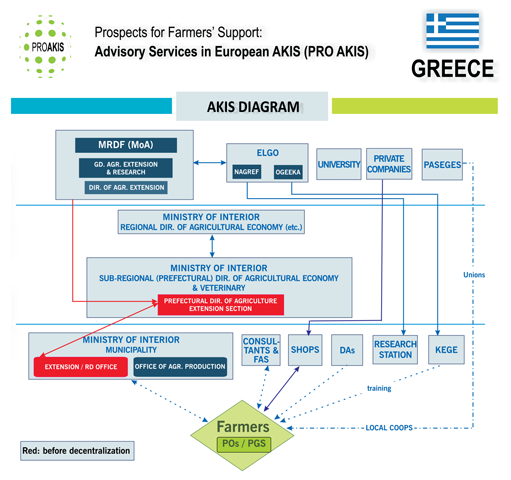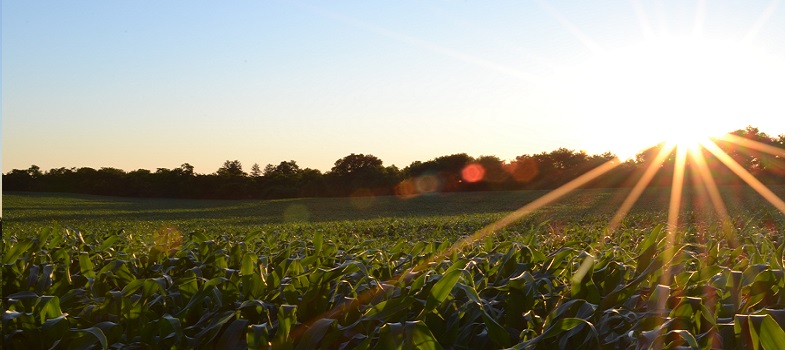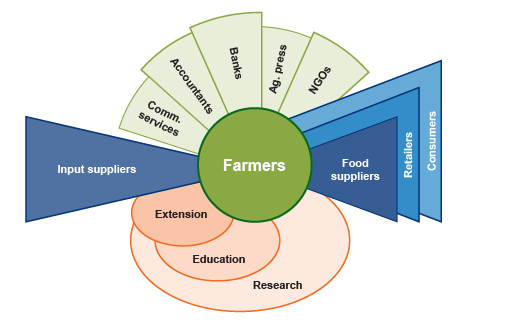Agricultural Knowledge and Innovation Systems (AKIS)
In this session I want to explore how agricultural advisory services are currently thought about and to better understand the potential role of Living Labs. We will start by looking at the concept of Agricultural Knowledge and Innovation Systems.
 Reflective Activity 4
Reflective Activity 4
What do you understand by the term Agricultural Knowledge and Innovation Systems? Write down what you see as the key features in the text box below.
Answer
Your answer will depend very much on your degree of involvement in agriculture and agricultural advisory services. It may not be as detailed as the answer provided below by Lee-Ann Sutherland of the James Hutton Institute in the UK and Pierre Labarthe from INRA in France in AgriLink Practice Abstract 23: What is AKIS? [Tip: hold Ctrl and click a link to open it in a new tab. (Hide tip)] , but as it is a term used within EU policy circles it helps to understand what it does mean.
An agricultural knowledge system (AKS) refers to the collection of agricultural information providers, the flow of information between them, and the institutions regulating these relations. It traditionally referred to farmers, support systems, educators, researchers and advisors, but has been broadened to include other actors (e.g. input suppliers, retailers). The term has also evolved from ‘Agricultural Knowledge and Information System’ to ‘Agricultural Knowledge and Innovation System’ (both acronyms are AKIS), to emphasise the importance of innovation. Both are frameworks for identifying the different actors and their roles in innovation and knowledge exchange within the agricultural sector, rather than theories or approaches.
Academics who use the term AKIS typically integrate it with another theory (e.g. relating to governance or systems) when undertaking empirical research, to increase its explanatory power. The concept of AKIS was developed by academics specifically interested in agricultural knowledge and communication. They aimed to promote the idea that innovation processes are social: farmers, advisors and researchers exchange and produce knowledge in conjunction with a number of sources.
The practical implication is that to stimulate innovation towards sustainable agriculture it is not sufficient to target farmers alone. Farmers are influenced by a diversity of actors and using the AKIS concept can help to better understand the reciprocal influences. The concept can thus be used in a reflexive way by thinking about the critical relations or networks for supporting innovation in various contexts.
More information on this topic can be found in this AgriLink Theory Primer on Agricultural Knowledge and Innovation/Information Systems.
You may still be unsure whether the I in AKIS stands for information or innovation. The two approaches to AKIS (information and innovation) can be considered competing (Dockès et al., 2011) or complementary (Klerkx et al., 2012). The Standing Committee on Agricultural Research Strategic Working Group on Agriculture Knowledge and Innovation Systems has used the definition in Dockès et al. (2011), original source Leeuwis and Ban (2004):
‘a network of organizations, enterprises, and individuals focused on bringing new products, new processes, and new forms of organization into economic use, together with the institutions and policies that affect the way different agents interact, share, access, exchange and use knowledge.’
In AgriLink, we have used a simpler definition:
‘the collection of agricultural information providers, the flows of information between them, and the institutions regulating these relations’.
In reality, innovation is the more current version, but information, or how information influences behaviour, is still an important component of an AKIS. And that exchange of information can come from a wide range of actors, processes and policies influencing agricultural innovation.
Agricultural policy across much of Europe is determined by the European Union. It is not necessary to understand this European policy context to follow how we thought about and how we ran our Living Labs, but you might be interested to know more if you do not know much about it. There is lots of detail to be found on farms, farming and innovation on the European Commission website but in particular you might want to read the page on sustainable agriculture and the CAP (Common Agricultural Policy).
 Reflective Activity 5
Reflective Activity 5
Can you name as many actors as possible in the text box below who you think might be involved in an Agricultural Knowledge and Innovation System that you are familiar with?
Answer
I cannot be sure who you have listed as there can be many actors with many different roles in an AKIS, but the most relevant actors as determined by the Standing Committee on Agricultural Research are pictured in Figure 2.1a. Of course, the range and balance of actors varies with location and context and does not have to be represented in the form shown in Figure 2.1a – two country examples are shown in Figure 2.1b produced by the PRO AKIS project.
You may have listed your actors in order of importance or degree of influence or closeness to farmers. Of course, other farmers can be important to any particular farmer, although the figure does not make this explicit, nor the role of family or farm workers.
However, thinking about actors in an AKIS is relevant to thinking about the stakeholders to be involved in a Living Lab, as you will see in later sessions.


Session 2 The nature of innovative agricultural advisory services

